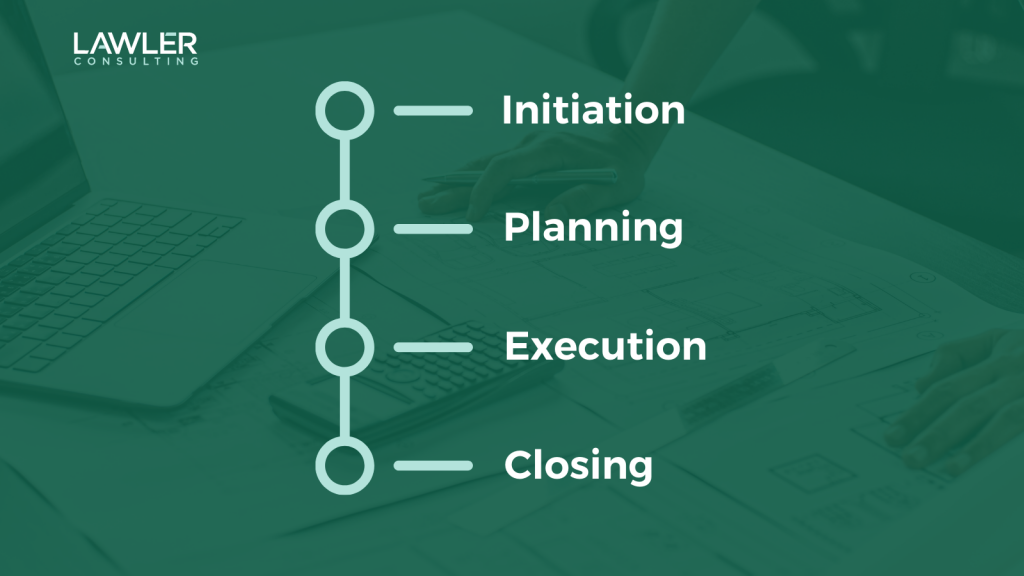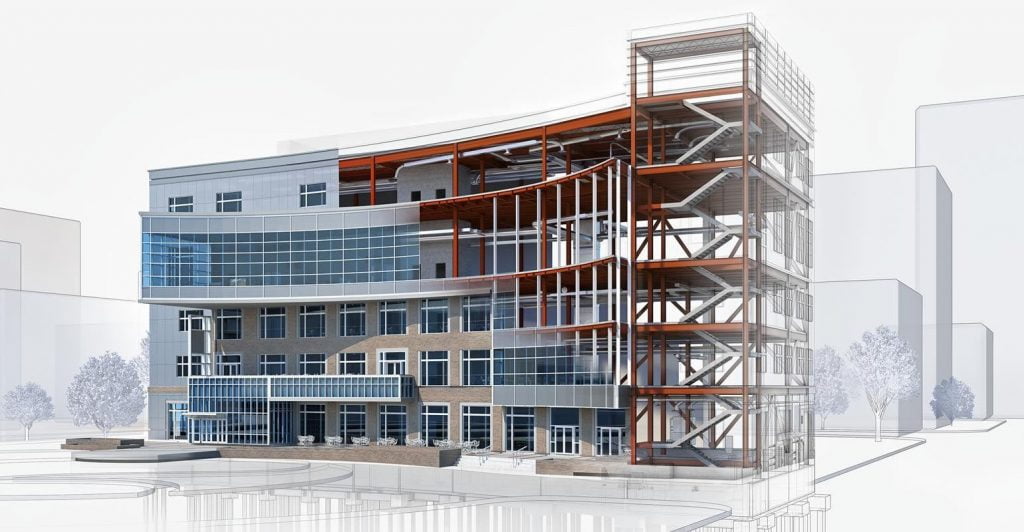In this article, we will dive into the concept of project management and its close ties to the engineering industry. As experts in the field, we will also give our indispensable project management tips, as well as explore some of the tools that help to keep our projects on the right track. While we will naturally be relating back to engineering and building management, it is important to note that the principles discussed can be applied to any project in any field.
What is Project Management?
The goal of project management is to deliver something of value to the end-user using a variety of knowledge, skills, tools, and techniques.
In the world of engineering, tight deadlines, logistical issues, high levels of collaboration, and susceptibility to risk, make project management absolutely imperative.
Our Expertise
At Lawler Consulting, we have a great deal of expertise in completing fast-track mechanical and electrical engineering projects on schedule and within budget.
The wealth of knowledge that our engineers, directors, and project managers possess means that no project is out of reach and that every problem is met with a solution.
Our project managers can speak with both local and national businesses about your project in order to prepare requirements, costs, and complete tenders, which they will then deliver to you along with our own evaluation and suggestions.
Tom Johnson House, 78 St. James’s Street, and Carrigtwohil Community College are just some recent examples of high-profile projects expertly managed by our engineers.
Now that you know a little more about our experience, here are our 5 Essential Project Management Tips.

5 Essential Project Management Tips
1. Prioritise Project Pre-Planning
We implore every engineer to complete their due diligence and dedicate considerable time and effort to the planning phase of a project.
Failing to plan properly leaves your project at a much greater risk of being derailed entirely when setbacks or changes occur. In fact, the majority of sources cite lack of planning as one of the biggest reasons projects fail.
Something that we have also learned over the years is to involve the project manager as early as possible. Having the project manager present in early meetings with the client ensures expectations are managed effectively and project requirements are clear.
Establishing requirements, objectives, project timelines, deadlines, and budgets at the start is vital to giving a project the best possible start and to making it manageable throughout.
2. Establish Clear & Defined Milestones
Every project will have a number of key deliverables and milestones that need to be met.
This holds particularly true for engineering and construction projects where often work on one aspect of a project cannot commence until another is completed.
Thus, a project’s success rests on the ability to recognise and identify its defining events. A functional way of achieving this is to map out the project’s lifecycle which comprises the key stages of initiation, planning, execution, and closing.

3. Use Project Management Tools
As an engineer, project management tools and technology will be one of your biggest allies.
The majority of project management software facilitates collaboration and allows you to plan out and create visualizations of each project phase.
Additionally, they are highly proficient at tracking progress, granting your entire team visibility to a project’s KPIs.
Some of the benefits of using these tools include:
- Improved collaboration
- Effective budget management
- Enhanced risk mitigation
- Increased productivity
- Real-time information and updates
Often in engineering, more specialised software is required. In the case of many of our projects, Building Information Modelling (BIM) is employed.
Building Information Modelling (BIM)
BIM can be described as a process for creating and managing information throughout the entire lifecycle of a project.
It uses the latest in building technology to create and store a digital portfolio on every aspect of a build. This includes generating 3D renders of each building asset and informative data used to guide a construction project from pre-planning all the way through to the final handover.
With labour and raw materials costs increasing rapidly and supply chain delays becoming commonplace, more and more projects are utilising BIM to improve efficiency.
The growing business case for BIM is reflected in its market growth with the industry expected to reach $9 billion in value by 2025.

4. Manage Project Risks and Prepare to be Flexible
Every project will have its problem areas where things can go wrong, and more often than not, they do. It is just the nature of large-scale projects that comprise various moving parts.
Therefore, preparation is cardinal. Failure to identify and plan for potential risks can completely derail your project.
A risk management plan can help navigate any potential issues that may arise during a project’s lifecycle.
Flexibility in your approach is also key. This holds particularly true for engineering projects where we encounter supply chain issues, fluctuating prices of raw materials, and labour shortages.
5. Test & Evaluate
Do you remember those key project deliverables we discussed earlier? It is crucial to perform comprehensive and stringent tests on these before moving on.
Regular testing ensures that no issues slip through the cracks, Similarly, it helps to guarantee a quality end product is delivered to the client.
Continuous evaluation is also critical. At Lawler Consulting, we offer energy facilities management services.
Once a building is turned over to the customer, our obligation does not end there. We also have a responsibility to maintain the building’s continuous operation, including all mechanical and electrical systems, as well as to upgrade the building’s interior and exterior facilities.
We hope you enjoyed learning about how to practice project management effectively! Next, why not check out our article on ‘How Mechanical Engineering and Electrical Engineering are Driving Sustainability’.
Our mission at Lawler Consulting is to make our buildings more energy-efficient, cost-effective to operate, and sustainable. If you are interested in our energy reduction solutions, please contact us here.
Follow us on LinkedIn to keep up to date with all of our latest developments and industry trends.




